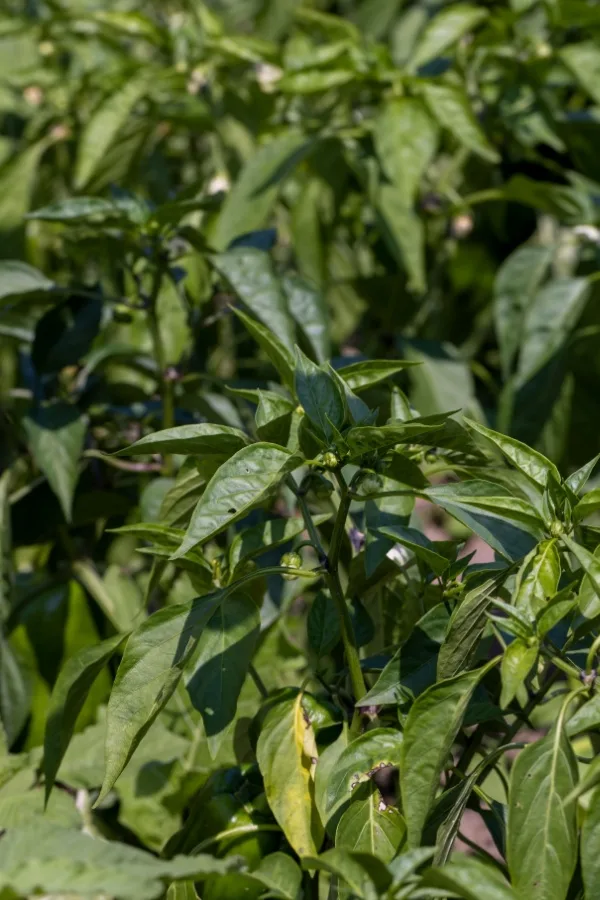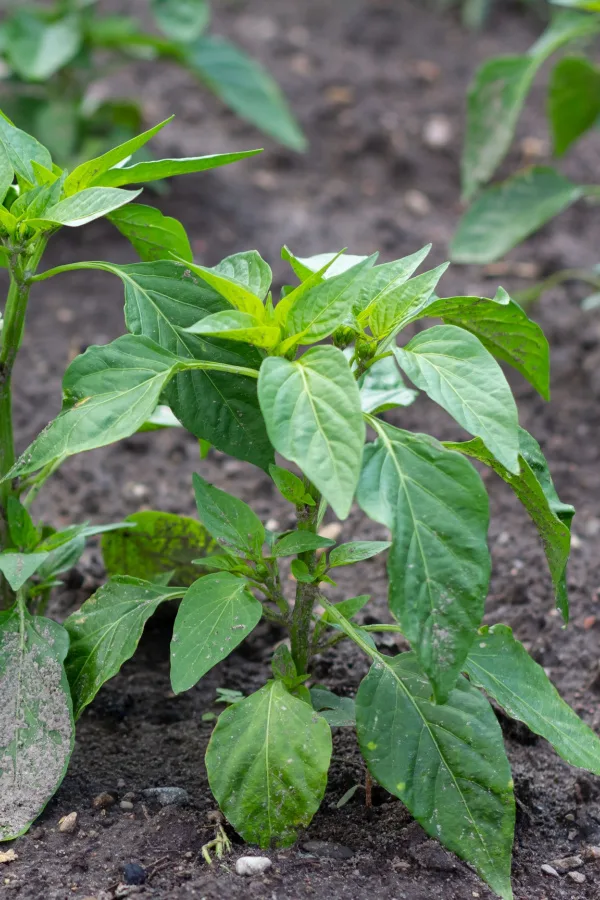Explore the Best Fertilizers for Peppers and Enhance Your Yard's Yield
Explore the Best Fertilizers for Peppers and Enhance Your Yard's Yield
Blog Article
Organic Vs. Synthetic Fertilizers: Which Is Best for Nurturing Healthy Pepper Plants?
In the realm of supporting healthy and balanced pepper plants, the option between artificial and organic plant foods stands as an essential decision with significant implications. While both alternatives purpose to supply crucial nutrients to sustain plant growth, the nuances of their influence on the dirt, plant health and wellness, and the environment spark a discussion that mirrors throughout the gardening community. Understanding the distinct benefits and prospective pitfalls of each plant food kind is critical for pepper farmers seeking to optimize their returns while preserving an eco-conscious and lasting technique.
Advantages of Organic Plant Foods
Organic fertilizers offer a lasting and environmentally-friendly strategy to nourishing pepper plants, providing essential nutrients without making use of synthetic chemicals. These all-natural plant foods are obtained from organic resources such as compost, manure, bone dish, and seaweed, advertising soil wellness and biodiversity. Unlike synthetic plant foods, organic choices launch nutrients slowly, ensuring a constant and balanced supply for pepper plants to grow.
One considerable advantage of organic plant foods is their ability to boost dirt structure and water retention. By boosting soil wellness, organic plant foods advertise beneficial microbial task, which assists in nutrient uptake by pepper plants. Additionally, organic plant foods reduce the danger of chemical run-off, shielding water sources from contamination and guarding the setting.
Additionally, natural plant foods add to long-term soil fertility by promoting the development of beneficial soil organisms. These microorganisms help damage down raw material, releasing nutrients in a type that is easily available to pepper plants. best fertilizers for peppers. By fostering a healthy and balanced dirt environment, natural fertilizers sustain sustainable pepper cultivation techniques that benefit both plants and the atmosphere
Disadvantages of Artificial Fertilizers
Artificial plant foods, in contrast to their organic counterparts, position numerous drawbacks when used to nurture pepper plants, influencing both plant wellness and ecological sustainability. One significant disadvantage of synthetic fertilizers is their tendency to seep nutrients from the dirt swiftly.
Additionally, the overuse of artificial fertilizers can contribute to water pollution. Excess fertilizers not soaked up by plants can clean away right into water bodies, causing eutrophication, where algae blooms diminish oxygen degrees in the water, harming marine life. In addition, artificial fertilizers are generally originated from non-renewable sources, such as nonrenewable fuel sources, adding to carbon emissions and ecological deterioration throughout their production.
Nutrient Absorption Contrast
When contrasting natural and artificial fertilizers in terms of nutrient absorption, organic fertilizers have the advantage of supplying an extra well balanced and slow-release resource of nutrients. Organic fertilizers include a range of macro and trace elements that are not just advantageous for the plants however likewise advertise healthy and balanced dirt microbial task, which assists in nutrient uptake.
Furthermore, organic plant foods improve dirt framework and water retention ability, permitting pepper plants to access nutrients more efficiently. This improved soil high quality facilitates root development, allowing much better nutrient absorption. Artificial plant foods, although originally enhancing plant growth as a result of their high nutrient focus, might prevent long-term nutrient absorption by derogatory dirt click to find out more health in time.
Environmental Impact Considerations

On the various other hand, synthetic plant foods, although typically even more promptly available and focused to plants, can have damaging effects on the setting if not used correctly (best fertilizers for peppers). Their production needs high energy inputs, bring about greenhouse gas exhausts and adding to environment change. Additionally, the runoff of excess artificial fertilizers can infect water sources, bring about eutrophication and harming marine ecological communities.
Finest Plant Food Practices for Peppers
To accomplish this, it is vital to comply with best fertilizer techniques customized to the particular demands of pepper plants. One vital method is to execute a dirt examination prior to applying any type of fertilizers.
Another important practice is to feed pepper plants at the appropriate time. Typically, peppers profit from getting plant food at growing and afterwards again when they begin to blossom. Over-fertilizing can result in nutrient imbalances and damage the plants, so it is essential to adhere to suggested application rates.
Furthermore, picking a well balanced fertilizer with an NPK ratio that matches pepper plants' needs click for more info is essential. Organic fertilizers, such as garden compost or manure, can be superb options as they release nutrients gradually and boost dirt structure over time. Nonetheless, synthetic fertilizers can give a quick nutrient boost when required. Ultimately, combining artificial and organic plant foods deliberately can assist nurture healthy and balanced pepper plants while decreasing environmental impact.
Final Thought

Organic fertilizers provide an environmentally-friendly and sustainable technique to nourishing pepper plants, offering essential nutrients without the use of artificial chemicals. Unlike artificial fertilizers, organic alternatives release nutrients slowly, making sure a stable and well balanced supply for pepper plants to grow.
Synthetic fertilizers, in contrast to visit this web-site their natural equivalents, posture various disadvantages when made use of to nurture pepper plants, affecting both plant health and wellness and ecological sustainability. When contrasting organic and synthetic fertilizers in terms of nutrient absorption, organic plant foods have the advantage of providing an extra well balanced and slow-release source of nutrients.Furthermore, natural plant foods enhance dirt structure and water retention ability, enabling pepper plants to gain access to nutrients more successfully.
Report this page